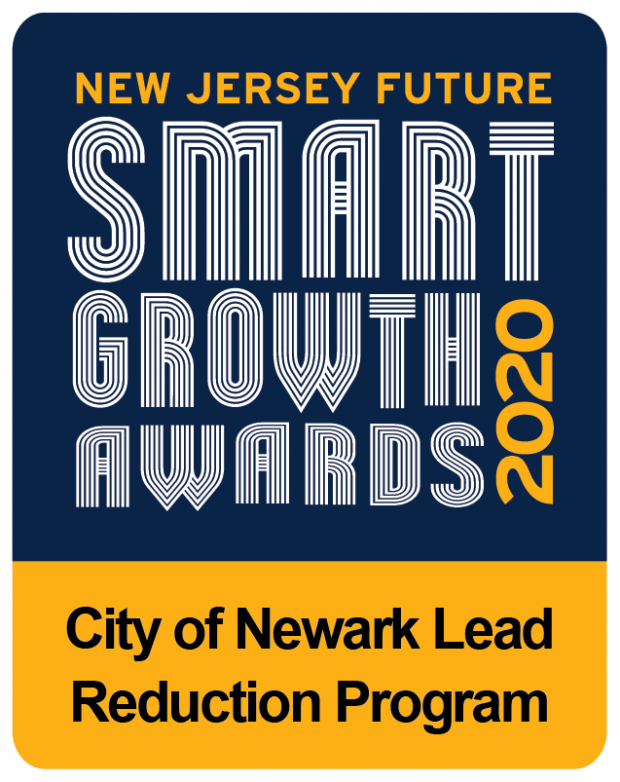City of Newark Lead Reduction Program

Project Name: City of Newark Lead Reduction Program
A revolutionary citywide lead removal program recognized as a national model for its aggressive approach to removing lead in drinking water; swiftly and efficiently replacing more than 18,000 lead service lines within three years at no charge to residents.
Primary Partner Team: City of Newark; Newark Department of Water and Sewer Utilities; State of New Jersey; County of Essex; CDM Smith
City of Newark Lead Reduction Program
Community Collaboration to Improve Public Health
“The number one thing is collaboration and our relationship that we have with the community.”—City of Newark Mayor Ras Baraka
Healthy infrastructure builds healthy communities. Today, Newark is well on its way to becoming a healthier city with dramatically improved water infrastructure that will benefit generations to come. The improvements are part of the city’s revolutionary lead removal program which has become a national model for its aggressive approach to removing lead in drinking water. The program is on target to replace more than 18,000 lead service lines (LSLs) within three years of its start at no charge to residents.
From 2017 to 2019, Newark experienced several consecutive exceedances of the federal limit for lead in drinking water. This was no small problem given that Newark supplies approximately 80 million gallons per day of water to more than 300,000 residents within the city and its surrounding communities. As public health concerns grew, Mayor Ras Baraka took decisive action and made the swift removal of lead from the city’s drinking water a priority of his administration and further protects his residents by providing them free water filters, free water tests, and free lead testing for families at the city’s health department as they wait to have their lines removed.
Newark has been providing lead abatement in homes free to residents for almost 50 years and has the largest lead abatement program in New Jersey. However, much of Newark’s housing consists of old, affordable rental properties with LSLs. To address Newark’s lead problem, there was an urgent need to access and replace these lines, which were leaching lead into drinking water. The city worked to identify partnerships with the County of Essex and the State of New Jersey through innovative funding sources to provide full financial support for removal of the lines, thereby eliminating the typical cost-sharing arrangement that would have been borne by residents who couldn’t afford the replacements and the impediment of absentee landlords who wouldn’t pay for them.
To further aid in the removal process, Newark enacted a groundbreaking local ordinance providing the city’s water department with access to private property, eliminating another significant obstacle. New Jersey has since followed Newark’s lead and recently passed a similar statewide law.
Once these financial and legal hurdles were cleared, Newark launched a highly organized LSL replacement program with the goal of complete replacement within three years. (Most other community LSL replacements have taken nearly a decade.) Newark has already replaced more than 16,000 LSLs, continuing its removal work during the COVID-19 pandemic.
The city attributes much of the program’s success to its community-centered, trust-building approach. Led by Newark’s Director of the Department of Water and Sewer Utilities Kareem Adeem, the program has included a highly effective communications plan utilizing local leaders and organizations to engage and inform residents, as well as a transparent user-friendly website. The city also developed a unique apprenticeship program that trains and hires local contractors to perform the LSL replacements, increasing employment opportunities for residents and maximizing impact on the local economy.
Newark is on pace to remove its remaining LSLs by the first half of 2021, surpassing its original aggressive goal and quickly solving a critical infrastructure problem impacting public health. Newark’s collaborative, community-centered approach significantly contributed to the program’s overwhelming success—success which has made it an outstanding model for communities across the country to emulate.











